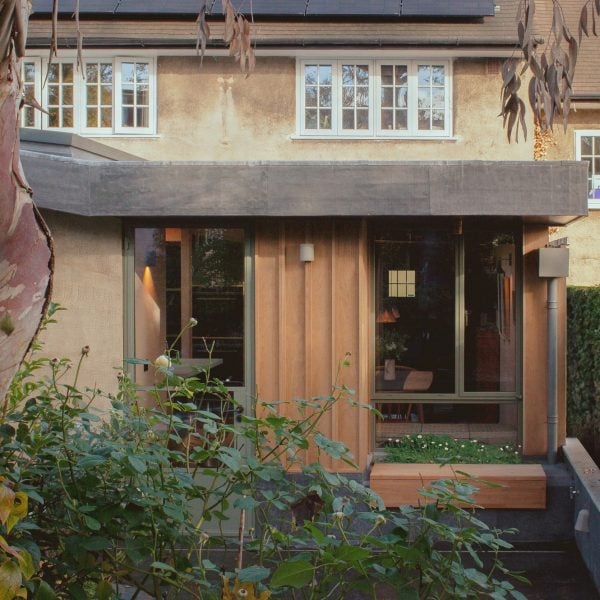Architecture studio Pensaer referred to its clients’ love for gardening when designing this cottage extension in Herne Hill, London, which is finished with a palette of wood and reclaimed materials.
The extension to the rear of Allotment Cottage has a timber frame and features a facade with a built-in outdoor bench and window seat, intended to bring “the garden and home together”.
It is designed by Pensaer to encourage its owners Kevin and Will, who are both avid gardeners, to spend time outdoors and in their garden allotment every day.
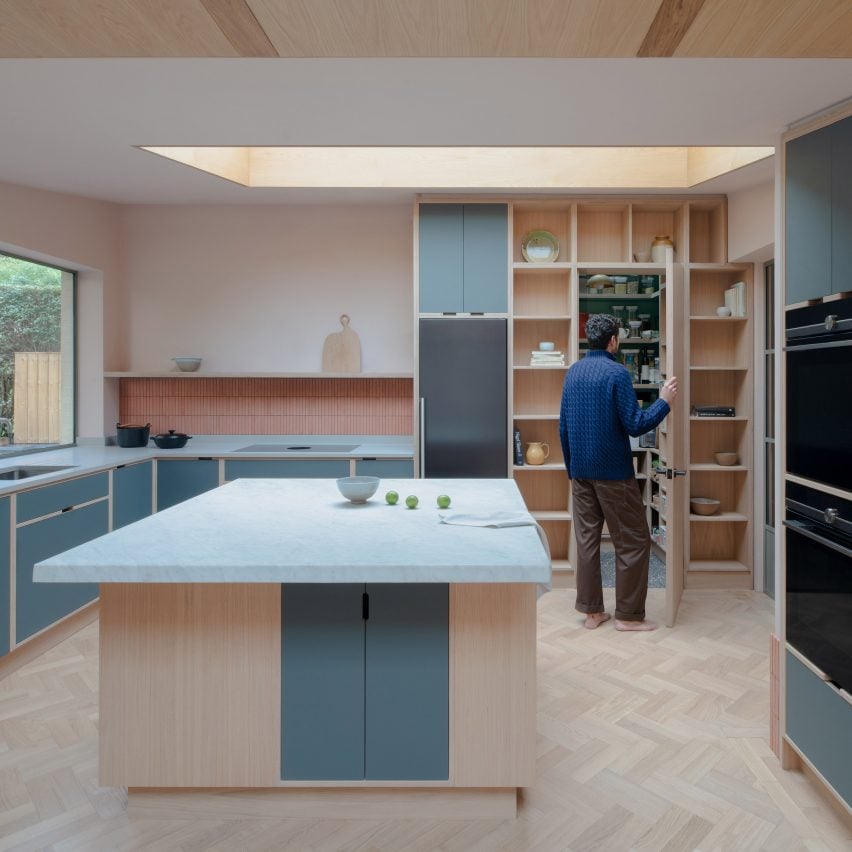
The garden is such an important part of Kevin and Will’s lives, so we considered a ‘day in the life of’ approach, and each task was identified as one that could be improved with the new extension,” Pensaer told Dezeen.
“The result is a facade of three parts,” it continued. “The first, a bench outside for resting or placing produce, that would be covered to take shelter from the rain.”
“The second part, a transition space for seating, to take off your boots, or put up your umbrella, and the third element is the inside window seat where there is a visual connection to the outside and homegrown produce can be enjoyed at the dining table,” added Pensaer.
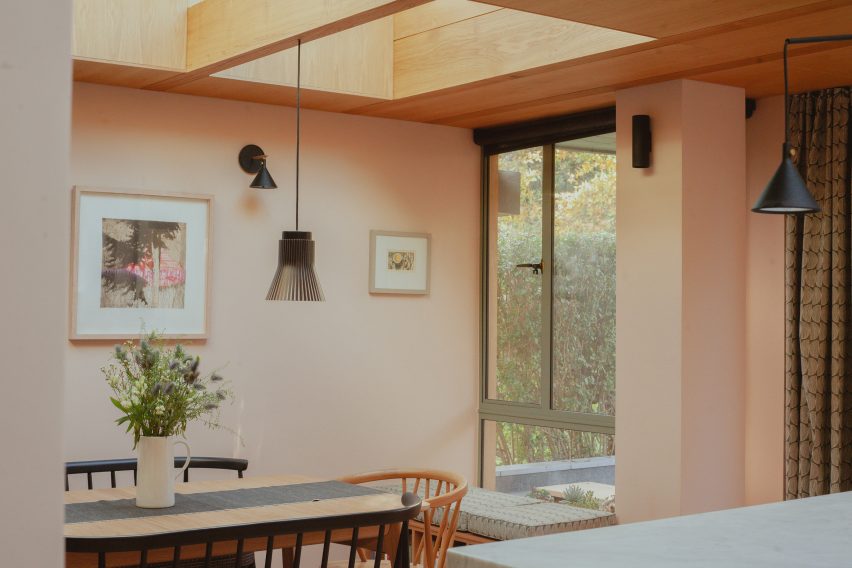
Inside, the ground floor has been opened up to create a “circular flow” between four distinct living spaces that are arranged around a central hearth.
A large open-plan kitchen and dining area now opens onto the rear garden, while a more private living room and snug area are located at the front of the home.
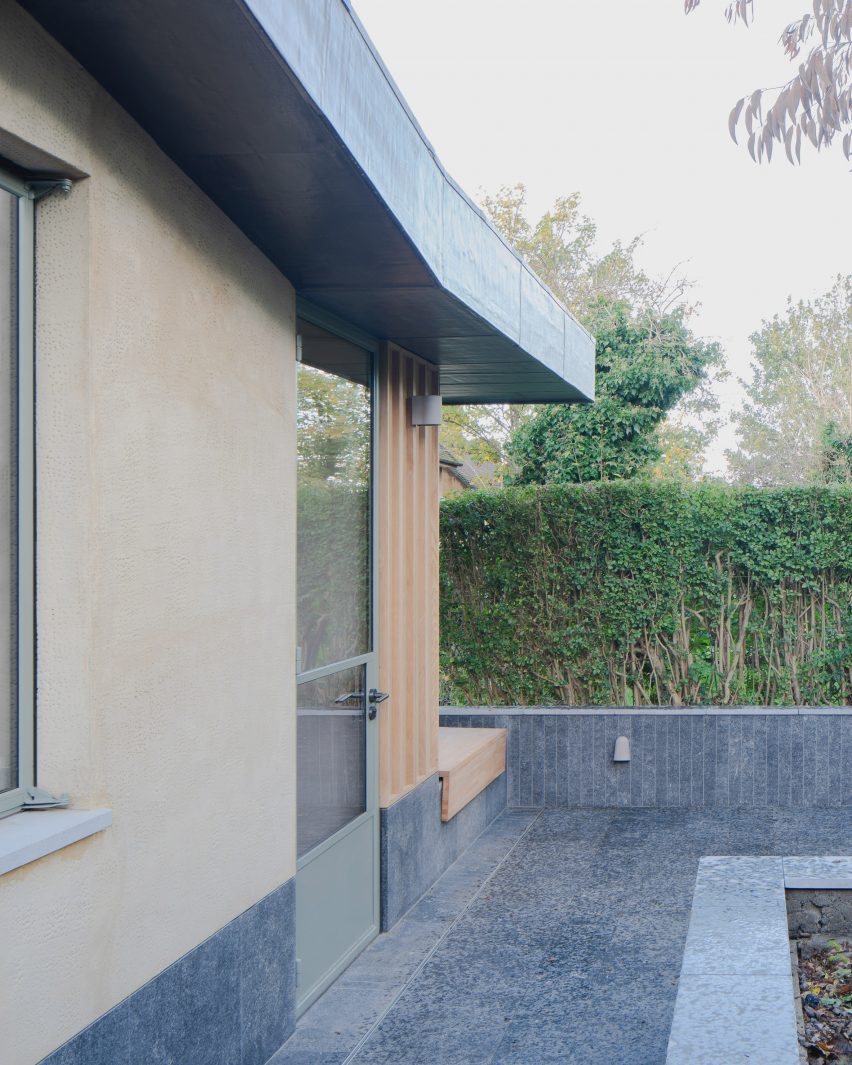
Externally, Allotment Cottage’s extension features oak cladding, steel-framed windows and a lead roof that echoes the existing building to ensure old and new sit “harmoniously” together.
The use of stone for the extension’s plinth and patio nods to the occupation of one of the homeowners as a stonemason.
Meanwhile, the use of timber for the extension’s structure was chosen to help minimise the carbon footprint of the project.
This ambition also led Pensaer to salvage and reuse materials during the renovation, including an old stone worktop and external paving, and add insulation to the loft, walls and floor to improve thermal performance.
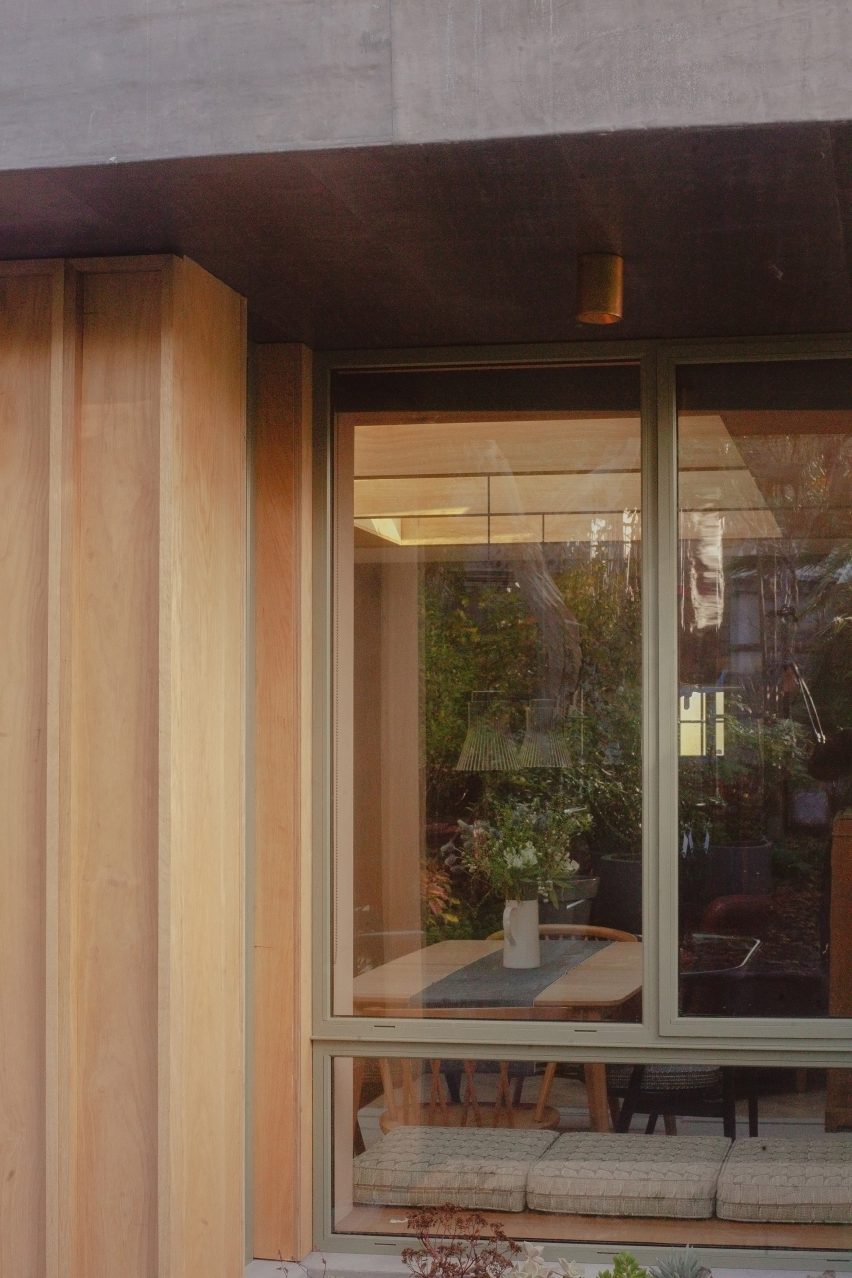
“Working efficiently with any budget is important, and focusing on craft and sustainability was challenging but rewarding,” said Pensear.
“Using salvaged materials, reducing steel in favour of timber, and adding solar panels all contributed to a design that’s both functional and environmentally friendly.”
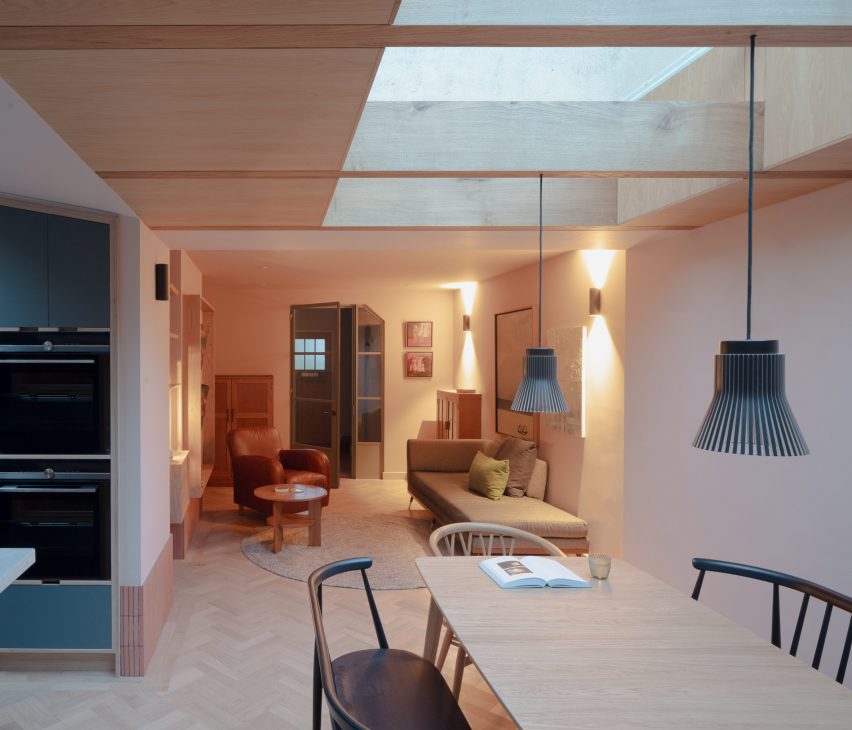
Utilising the pitched roof of the extension, Pensear has introduced a rainwater harvesting system that supplies the garden with water for the vegetables. It is stored underneath the covered outdoor bench.
Other London house extensions recently featured on Dezeen include one with a “fried-egg” canopy by THISS Studio and a room filled with vinyl by Benjamin Wilkes.
The photography is by Jerry Florez unless stated otherwise.

